- Teacher: Kristine Bella
- Teacher: Miranda Carney-Morris
Lewis & Clark Moodle
Résultats de la recherche: 286
Readings, critiques, and more involved assignments leading to in-depth discussions and approaches to understanding and exploring sculpture.
- Teacher: Jess Perlitz
Readings, critiques, and more involved assignments lead to in-depth discussions and approaches to understanding and exploring sculpture.
- Teacher: Jess Perlitz
- Teacher: Jess Perlitz
- Teacher: Jess Perlitz
to sewing, advanced techniques, and conceptual practices. Creating sculpture
that demonstrates technical proficiency and radical explorations of content, materials, and context as it relates to form.
- Teacher: Jess Perlitz
to more materials. Creating sculpture that demonstrates technical proficiency and radical explorations of content, materials, and context as it relates not only to materials & form, but also function.
- Teacher: Jess Perlitz
contemporary painting by exploring a variety of
approaches to pictorial space from 20th-century
modernism through postmodernism and contemporary
practice. Students will strengthen technique and
material knowledge of working in oil paints,
identify individual working processes, expand
critical language through discussion and readings,
and develop a significant and informed body of
work.
- Teacher: Cara Tomlinson
- Teacher: Dawn Odell
- Teacher: Matthew Johnston
- Teacher: Matthew Johnston
as integral components of an emerging modernity in
the United States and Europe during the 19th
century. Focus on technical innovations and the
examination of primary writings by artists,
critics, authors, and other cultural figures to
assess their aspirations for and anxieties about
the innovations' social and cultural implications.
Realism as a movement in academic art; debates
about the artistic value of mass media and the
impact on artistic practice; early mass media and
the pursuit of political change; the relationship
between art and science; the shaping of national,
racial, class, and gender identities; the
emergence of the modern commercial market and
industrial production.
- Teacher: Matthew Johnston
century to the present, focusing on the way
historical developments in architecture reflect
and influence social values and on architecture as
a unique artistic medium. Specific issues include:
entirely new types of buildings and structures for
a modern industrial and commercial society, new
building materials, the decline of craftsmanship,
the constraints and opportunities of urban
planning, and the impact of new
design/reproduction technologies. Provides a set
of architectural concepts and terms for describing
structure and space and a critical overview of the
aesthetic, technical, and social issues
confronting architects over the past two and a
half centuries. Finally, investigates how
architects themselves conceptualized the
challenges facing them as architecture responded
to and shaped an evolving modern world, through
close readings of their writings in relation to
the buildings and structures they designed.
- Teacher: Matthew Johnston
- Teacher: Dawn Odell
century to 1949, with a focus on work created in
four cities: Suzhou, Guangzhou, Beijing, and
Shanghai. Considerations of relationships between
the built environment and artist production;
definitions of modernity; artistic conventions and
religious beliefs of the Manchu court; impacts of
trade with Europe and America on visual culture;
responses to new reproductive technologies,
including lithography and photography; woodblock
print and film as mediums of political protest.
- Teacher: Dawn Odell
- Teacher: Eric Jensen
In this shared community space students are encouraged to support one another, post questions, learn about upcoming events, and access important information about the program.
- Teacher: Mary Andrus
- Teacher: Kristine Bella
- Teacher: Jillynn Garcia
- Teacher: Gaelan Harmon-Walker
- Teacher: Margaret Hartsook
- Teacher: Erin Headley
- Teacher: Portia Jones
- Teacher: Maria Leija Briones
- Teacher: Erin Partridge
- Teacher: Counseling Psychology
- Teacher: Quinn Rivenburgh
- Teacher: Justin Rock
- Teacher: Missy Satterberg
- Teacher: Beth Ann Short
Through the lens of art
therapy this course will examine; polyvagal theory, brain development and the
impact of trauma on the developing brain, the stages of treatment when working
with clients who have experienced trauma, methods to protect and manage self-care
to address vicarious traumatization in clinical practice, various methods to
treat trauma with different client populations and showing sensitivity to
cultural, environmental and developmental needs. Teaching methods include but
are not limited to readings, lecture, video, discussions, and experiential art
making directives.
examine: polyvagal theory, brain development and
the impact of trauma on the developing brain; the
stages of treatment when working with clients who
have experienced trauma; methods to protect and
manage self-care to address vicarious
traumatization in clinical practice; various
methods to treat trauma with different client
populations; and showing sensitivity to cultural,
environmental and developmental needs. The course
examines the impact of racial trauma, oppression
and historical and generational trauma to help
students address injustice and support healing.
Teaching methods include but are not limited to
readings, lecture, video, discussions, and
experiential art making directives.
- Teacher: Mary Andrus
examine: polyvagal theory, brain development and
the impact of trauma on the developing brain; the
stages of treatment when working with clients who
have experienced trauma; methods to protect and
manage self-care to address vicarious
traumatization in clinical practice; various
methods to treat trauma with different client
populations; and showing sensitivity to cultural,
environmental and developmental needs. The course
examines the impact of racial trauma, oppression
and historical and generational trauma to help
students address injustice and support healing.
Teaching methods include but are not limited to
readings, lecture, video, discussions, and
experiential art making directives.
- Teacher: Mary Andrus
- Teacher: Marie Mellberg
- Teacher: Marie Mellberg

- Teacher: Marie Mellberg

- Teacher: Marie Mellberg
understanding of the issues and dynamics in
counseling across social and cultural lines.
Students will explore the nature of society and
culture and how these impact the counseling
process. Students will broaden their scope of
diversity awareness and knowledge including
systems of power and privilege. Attention will be
given to developing an understanding of the
intersectionality of gender, class, race, and
ethnicity in working with diverse populations in a
counseling context.
- Teacher: Portia Jones
- Teacher: Portia Jones
- Teacher: Marie Mellberg

- Teacher: Marie Mellberg
understanding of the issues and dynamics in
counseling across social and cultural lines.
Students will explore the nature of society and
culture and how these impact the counseling
process. Students will broaden their scope of
diversity awareness and knowledge including
systems of power and privilege. Attention will be
given to developing an understanding of the
intersectionality of gender, class, race, and
ethnicity in working with diverse populations in a
counseling context.
- Teacher: Portia Jones
- Teacher: Portia Jones
- Teacher: Marie Mellberg
- Teacher: Francesca Debiaso
- Teacher: Gregory Kaplan
Dolls and puppets have a long lineage in human life and culture. Dolls and puppets take many forms from simple paper dolls to ornate, kinetic and sculptural creations. In therapy, dolls and puppets can serve as self-representation, a form of narrative storytelling, a means to explore identity, and a stimulus for exploring interpersonal dynamics. This two day course will introduce a variety of doll and puppet techniques for use with a wide range of client populations and settings—not just youth, but across the lifespan. Topics covered include 1. survey of historical doll and puppet creation around the world, 2. representation and symbolism of human forms in art therapy, 3. Techniques for 2-D and 3-D dolls and puppets, 4. Applications of Dolls and puppets in art therapy 5. Use of found and reclaimed materials, and 6. Emotional, ethical and cultural considerations.
Course Description:
This experiential course will incorporate active making and experiential exercises in the use of dolls and puppets in art therapy. Students will explore a wide range of materials and engage in discussion about the application of these materials to use in art therapy for clients across the life and health span. Dolls and puppets have the capacity to serve many roles in the therapeutic context during the process of creation, use of storytelling and play, and reflection on the completed forms. Students will create a resource for their future practices through a ‘doll journal’ and they will also consider the application to a population or setting of interest.
- Teacher: Erin Partridge
- Teacher: Emma Wear
all of biology, illustrated through
evidence-driven examples centered on integrative
organismal biology and organisms' interactions
with the biotic and physical environment. We will
explore the evolution of life, flow of information
within and among individuals, the influence of
structure on function at scales from individuals
to ecosystems, the transformations of energy and
matter in space and time, and the dynamic systems
that characterize Earth and its inhabitants.
Topics will vary according to faculty expertise.
See department website for specific section
details. Can be taken before or after BIO 202.
- Teacher: Emma Wear
- Teacher: Greta Binford
- Teacher: Margaret Metz
- Teacher: Emma Wear
- Teacher: Greta Binford
- Teacher: Emma Wear
- Teacher: Emma Wear
all of biology, illustrated through
evidence-driven examples centered on integrative
organismal biology and organisms' interactions
with the biotic and physical environment. We will
explore the evolution of life, flow of information
within and among individuals, the influence of
structure on function at scales from individuals
to ecosystems, the transformations of energy and
matter in space and time, and the dynamic systems
that characterize Earth and its inhabitants.
Topics will vary according to faculty expertise.
See department website for specific section
details. Can be taken before or after BIO 202.
- Teacher: Emma Wear
- Teacher: Emma Wear
An introduction to core principles that underlie, all of biology, illustrated through, evidence-driven examples centered on integrative, organismal biology and organisms' interactions, with the biotic and physical environment. We will, explore the evolution of life, flow of information, within and among individuals, the influence of, structure on function at scales from individuals, to ecosystems, the transformations of energy and, matter in space and time, and the dynamic systems, that characterize Earth and its inhabitants., Topics will vary according to faculty expertise., See department website for specific section, details. Can be taken before or after BIO 202.
- Teacher: Margaret Metz
- Teacher: Emma Wear
- Teacher: Emma Wear
- Teacher: Emma Wear
all of biology, illustrated through
evidence-driven examples centered on integrative
organismal biology and organisms' interactions
with the biotic and physical environment. We will
explore the evolution of life, flow of information
within and among individuals, the influence of
structure on function at scales from individuals
to ecosystems, the transformations of energy and
matter in space and time, and the dynamic systems
that characterize Earth and its inhabitants.
Topics will vary according to faculty expertise.
See department website for specific section
details. Can be taken before or after BIO 202.
- Teacher: Greta Binford
- Teacher: Margaret Metz
Welcome to our January 2025 Clinical Supervision for Professional
Counselors 4-day, 30 hour training! All the materials for our four-day
training will be available for your review, so please feel free to read
ahead if you'd like. Our training will be distance-based, and consist of both live Zoom and
"off-line" Moodle assignments, each of which we'll review and clarify
along the way.
This training is designed to be both educational and interactive, with a high level of trainee participation encouraged! Feedback from recent Zoom trainings have helped shape this course into a (hopefully) well-paced and user-friendly experience, while still capturing all of the essential elements of the full clinical supervision training.
I look forward to meeting each of you during our first morning of introductions. After a brief survey of your accumulated supervisory experiences, we will move into our training activities. Thank you in advance for your engagement and participation. "See" you on Thursday, January 23, 2025 at 8:30 am!
James Gurule, MA, LPC
Adjunct Faculty
- Teacher: Center for Community Engagement
- Teacher: James Gurule
Welcome to our January 2025 Clinical Supervision for Professional
Counselors 4-day, 30 hour training! All the materials for our four-day
training will be available for your review, so please feel free to read
ahead if you'd like. Our training will be distance-based, and consist of both live Zoom and
"off-line" Moodle assignments, each of which we'll review and clarify
along the way.
This training is designed to be both educational and interactive, with a high level of trainee participation encouraged! Feedback from recent Zoom trainings have helped shape this course into a (hopefully) well-paced and user-friendly experience, while still capturing all of the essential elements of the full clinical supervision training.
I look forward to meeting each of you during our first morning of introductions. After a brief survey of your accumulated supervisory experiences, we will move into our training activities. Thank you in advance for your engagement and participation. "See" you on Thursday, January 23, 2025 at 8:30 am!
James Gurule, MA, LPC
Adjunct Faculty
- Teacher: Center for Community Engagement
- Teacher: James Gurule
Welcome to our August 2025 Clinical Supervision for Professional Counselors 4-day, 30 hour training! All the materials for our four-day training will be available for your review, so please feel free to read ahead if you'd like. Our training will be distance-based, and consist of both live Zoom and "off-line" Moodle assignments, each of which we'll review and clarify along the way.
This training is designed to be both educational and interactive, with a high level of trainee participation encouraged! Feedback from recent Zoom trainings have helped shape this course into a (hopefully) well-paced and user-friendly experience, while still capturing all of the essential elements of the full clinical supervision training.
I look forward to meeting each of you during our first morning of introductions. After a brief survey of your accumulated supervisory experiences, we will move into our training activities. Thank you in advance for your engagement and participation. "See" you on Thursday, July 10, 2025 at 8:30 am!
James Gurule, MA, LPC
Adjunct Faculty
- Teacher: Center for Community Engagement
- Teacher: James Gurule
Welcome to our August 2025 Clinical Supervision for Professional Counselors 4-day, 30 hour training! All the materials for our four-day training will be available for your review, so please feel free to read ahead if you'd like. Our training will be distance-based, and consist of both live Zoom and "off-line" Moodle assignments, each of which we'll review and clarify along the way.
This training is designed to be both educational and interactive, with a high level of trainee participation encouraged! Feedback from recent Zoom trainings have helped shape this course into a (hopefully) well-paced and user-friendly experience, while still capturing all of the essential elements of the full clinical supervision training.
I look forward to meeting each of you during our first morning of introductions. After a brief survey of your accumulated supervisory experiences, we will move into our training activities. Thank you in advance for your engagement and participation. "See" you on Thursday, July 10, 2025 at 8:30 am!
James Gurule, MA, LPC
Adjunct Faculty
- Teacher: Center for Community Engagement
- Teacher: James Gurule
Welcome to our May 2024 Clinical Supervision for Professional
Counselors 30 hour training! All the materials for our four-day
training will be available for your review, so please feel free to read
ahead if you'd like. Our training will be distance-based, and consist of both live Zoom and
"off-line" Moodle assignments, each of which we'll review and clarify
along the way.
This training is designed to be both educational and interactive, with a high level of trainee participation encouraged! Feedback from recent Zoom trainings have helped shape this course into a (hopefully) well-paced and user-friendly experience, while still capturing all of the essential elements of the full clinical supervision training.
I look forward to meeting each of you during our first morning of introductions. After a brief survey of your accumulated supervisory experiences, we will move into our training activities. Thank you in advance for your engagement and participation. "See" you on Thursday, May 16, 2024 at 8:30 am!
James Gurule, MA, LPC
Adjunct Faculty
- Teacher: Center for Community Engagement
- Teacher: James Gurule
COURSE OVERVIEW, THIS SECTION:
What is the self? How do we come to know the self? What is consciousness and where does it reside? These questions have fascinated philosophers and scientists for centuries. In the age of virtual reality and artificial intelligence, they have become more relevant than ever. Legal scholars, neuroscientists, and ethicists are embroiled in inquiry about the rights and responsibilities of artificial intelligence and downloaded consciousness (also known as “whole brain emulations”). But how do experts determine the answers to these questions, and what assumptions are best left behind? This course will draw on scientific journals, the popular press, and internet sources to examine identity in the virtual age. In the course of our quest, we will expand our ability to locate, think about, and make arguments with data.
While the heart of this E&D section is in Psychological Science, we will use a broad and interdisciplinary approach. We will use numbers and data visualization to explore virtual identities and bring these resources in conversation with long standing philosophical case studies such as Plato’s Allegory of the Cave. We will also draw on scholarship grounded in the social sciences regarding inequalities in our digital lives, particularly as they impact racial and sexual minorities. Alongside these content questions, we will evaluate the role quantitative reasoning can play in shaping the future of human-tech interaction.
- Teacher: Diana Leonard

This course asks the central question: how might we understand the complicated relationship between our understanding of the “ideal” city, our experiences in cities, and the numbers and images we use to describe the City? We will explore the ways in which statistics, maps, and images may corroborate or belie what we understand to be true of lived experience within urban spaces. Our course considers the city a living and dynamic organism, both a human construct and ever-present agent subtly shaping social performance. The curriculum will highlight diverse academic disciplines, ranging from art history to sociology, philosophy to urban planning. Participating students should be interested in working creatively with fellow classmates and making occasional off-campus site visits. Prior experience with statistics and mapping is not required or expected.
- Teacher: Read McFaddin

This course asks the central question: how might we understand the complicated relationship between our understanding of the “ideal” city, our experiences in cities, and the numbers and images we use to describe the City? We will explore the ways in which statistics, maps, and images may corroborate or belie what we understand to be true of lived experience within urban spaces. Our course considers the city a living and dynamic organism, both a human construct and ever-present agent subtly shaping social performance. The curriculum will highlight diverse academic disciplines, ranging from art history to sociology, philosophy to urban planning. Participating students should be interested in working creatively with fellow classmates and making occasional off-campus site visits. Prior experience with statistics and mapping is not required or expected.
- Teacher: Read McFaddin
- Teacher: Amy Rees
- Teacher: Carmen Knudson-Martin
- Teacher: Matthew Geraths
- Teacher: Clifford Bekar
the human-nature relationship and includes a
substantial body of evidence demonstrating the
physical and psychological benefits of interacting
with nature. A basic tenet of the field is that
our inner worlds and the outer world are
intimately connected. The need for nature still
resides in our bodies, minds, and spirit. From an
ecotherapy perspective, a central challenge of our
time is the integration of our connection with
nature with our scientific culture and our
technological selves. As such, ecotherapy has a
role to play in addressing such issues as the
decreased presence of nature in our lives; the
exponential growth of technology in daily living;
and the impact of global climate change. This
course guides students toward self-reflection
regarding their environmental identity and their
"sense of place". It also explores the motivations
for integrating ecological perspectives into
academic and professional work.
- Teacher: Ali Archer
the human-nature relationship and includes a
substantial body of evidence demonstrating the
physical and psychological benefits of interacting
with nature. A basic tenet of the field is that
our inner worlds and the outer world are
intimately connected. The need for nature still
resides in our bodies, minds, and spirit. From an
ecotherapy perspective, a central challenge of our
time is the integration of our connection with
nature with our scientific culture and our
technological selves. As such, ecotherapy has a
role to play in addressing such issues as the
decreased presence of nature in our lives; the
exponential growth of technology in daily living;
and the impact of global climate change. This
course guides students toward self-reflection
regarding their environmental identity and their
"sense of place". It also explores the motivations
for integrating ecological perspectives into
academic and professional work.
- Teacher: Ali Archer
- Teacher: Ali Archer
- Teacher: Christopher Russo
- Teacher: Pilar Hernandez-Wolfe
- Teacher: Lina Darwich
- Teacher: Megan Barrett
- Teacher: Megan Barrett
working successfully in the larger political,
social, economic, legal, and cultural environment
of an educational system. Examination of landmark
legal cases, federal policies, state and local
laws, and regulations impacting school systems.
Exploration of social justice avocation through
access and equity issues that promote equitable
learning for students. Discussions of the roles
and responsibilities of policy makers and
stakeholders.
- Teacher: Ben Kates
working successfully in the larger political,
social, economic, legal, and cultural environment
of an educational system. Examination of landmark
legal cases, federal policies, state and local
laws, and regulations impacting school systems.
Exploration of social justice avocation through
access and equity issues that promote equitable
learning for students. Discussions of the roles
and responsibilities of policy makers and
stakeholders.
- Teacher: Ben Kates
- Teacher: Dawn Montgomery
In the past, school-wide zero-tolerance policies, have focused mainly on reacting to specific, student misbehavior by implementing, punishment-based strategies. Research during the, past 20 years has shown that school-wide behavior, systems that are positively focused on desired, behaviors can result in a substantive lifestyle, impact for all members of a school community. This, course will examine the systems-based approach for, implementing culturally proficient, multi-tiered,, school-wide behavior supports, and the critical, role that school leaders have in building positive, learning environments for each student.
- Teacher: Vicki Nishioka
- Teacher: Loretta Benjamin-Samuels
- Teacher: Lisa McCall
This foundational course is designed to introduce
the theories, practices, core responsibilities,
and issues associated with leadership and social
justice in educational organizations. Aspiring
principals and other educational practitioners
move toward acquiring and affirming requisites and
capacities to engage in social justice praxis
(critical reflection and action) towards improving
conditions and culture in schools in authentic and
collaborative ways. Candidates learn about
instructional, organizational, community, ethical,
and sociopolitical functions of leadership. Using
research and reflection, candidates analyze and
clarify internal and external conceptions of and
attitudes toward leadership at the intersection of
social injustice including but not limited to:
systemic racism, whiteness as privilege and power,
gender and class biases, ableism, and deficit
minded decision-making to guide them in leadership
work.
- Teacher: Yolanda Coleman
- Teacher: Lisa McCall
- Teacher: Megan Barrett
- Teacher: Megan Barrett
working successfully in the larger political,
social, economic, legal, and cultural environment
of an educational system. Examination of landmark
legal cases, federal policies, state and local
laws, and regulations impacting school systems.
Exploration of social justice avocation through
access and equity issues that promote equitable
learning for students. Discussions of the roles
and responsibilities of policy makers and
stakeholders.
- Teacher: Megan Barrett
working successfully in the larger political,
social, economic, legal, and cultural environment
of an educational system. Examination of landmark
legal cases, federal policies, state and local
laws, and regulations impacting school systems.
Exploration of social justice avocation through
access and equity issues that promote equitable
learning for students. Discussions of the roles
and responsibilities of policy makers and
stakeholders.
- Teacher: Megan Barrett
- Teacher: Dawn Montgomery
- Teacher: Dawn Montgomery
- Teacher: Matsya Siosal
- Teacher: Dawn Montgomery
- Teacher: Dawn Montgomery
- Teacher: Joel Hoff
have focused mainly on reacting to specific
student misbehavior by implementing
punishment-based strategies. Research during the
past 20 years has shown that school-wide behavior
systems that are positively focused on desired
behaviors can result in a substantive lifestyle
impact for all members of a school community.
Additionally, these school wide initiatives must
be supported by district-wide systems of
multi-tiered interventions and equitable policies
that focus on reducing exclusionary discipline,
increasing attendance, and sustaining positive,
inclusive, and hate-free school and district
cultures. This course will examine the
systems-based approach for implementing culturally
proficient, multi-tiered, school-wide behavior
supports, and the critical role that school
leaders have in building positive learning
environments for each student.
- Teacher: Joel Hoff
(earthquakes, volcanic eruptions, landslides,
tornadoes, hurricanes, fires, tsunamis), with a
focus on the interplay between the human and
physical landscapes that make these events so
deadly and imbued with diverse meanings.
Perspectives drawn from the humanities, social
sciences, and natural sciences to examine both
historical events whose consequences have played
out and recent dramas whose aftermaths are still
unfolding. Contrast of impacts and perceptions of
these events with select examples of anthropogenic
disasters (Chernobyl, Bhopal, Deepwater Horizon);
anticipation of future natural disasters and
consideration of the science of living with risk.
Projects emphasize local and regional issues.
- Teacher: Elizabeth Safran
- Teacher: Elizabeth Safran
- Teacher: Elizabeth Safran
- Teacher: Elizabeth Safran
- Teacher: Elizabeth Safran
- Teacher: Jessica Kleiss
- Teacher: Jessica Kleiss
- Teacher: James Proctor
- Teacher: Elizabeth Safran
- Teacher: Jessica Kleiss
- Teacher: James Proctor
- Teacher: Jessica Kleiss
time, focusing primarily on the ecology, history,
management, and controversy surrounding Pacific
Northwest coniferous forests and comparing these
nearby forests with others across the globe.
Field-intensive, with one overnight and two
daylong forest excursions, and fieldwork in
forests adjacent to Lewis & Clark. Students will
gain skills in tree and forest measurement, a more
variegated understanding of our region's forested
landscape, an opportunity to engage firsthand with
people who approach these forests in differing
ways, and a group-sourced context via multiple
small-team projects on forests in other parts of
the world. Lectures; reading discussions; guest
panels; fieldwork and field trips; team projects.
- Teacher: James Proctor
- Teacher: James Proctor
A planning space for ENVX symposium.
- Committee Member: Elizabeth Safran
- Teacher: Danica Jensen Weiner
- Teacher: Alejandra Favela
- Teacher: Danica Jensen Weiner
- Teacher: Sarika Mosley
- Teacher: Alejandra Favela
- Teacher: Danica Jensen Weiner
- Teacher: Sarika Mosley
This course is an exploration of the strategies, methodology, philosophy, and classroom organizational structure that have been found to benefit content and literacy outcomes for ELL (English language learner) students. Language experience, cooperative learning, and constructivist strategies are practices that will be examined and modeled during this course. Students will revisit first and second language acquisition, as well as sheltered instruction models, used to adapt curriculum for ELL students at all grade levels. The practices learned in this course ensure development of language proficiency by accessing content and cognitive language. Participants learn the use of authentic assessments that allow students to demonstrate learning in ways not dependent on high levels of English. Exploration of ELP (English Language Proficiency) standards and strategies will deepen student understanding of the relationship between oral language and content learning. Participants will experience a wide range of methodologies and reflect on how they impact student and teacher learning.
- Teacher: Erin Ocon
- Teacher: Amber Tatge
- Teacher: Yasin Tunc
- Teacher: Elizabeth Safran
Fall 2021 - Gender Studies
231 Genders and Sexualities in a Global Perspective
Course Description: This is a feminist anthropological approach to the study of gender and sexuality. We will read some text that take a cross-disciplinary approach within the social sciences; however, this is not a general survey course. Our approach to reading emphasizes comprehension, analysis and critique, in that order. The course pace is slow - moderate.
The course has three aims/trajectories. First, it provides a historiography of studying social difference within anthropology. Anthropologists acknowledge the changing nature of culture, society, and nation. Some material will be dated. Some is not. We are looking at how theory, debates and analyses around gender and sexuality have developed/is changing over time in the discipline and within different socio-cultural settings. The second aim picks up from there. In addition to textbooks, we will read ethnographic research article and ethnographic texts that provide historical and contemporaneous descriptions of gender identity and sexual expressions in different socio-cultural settings. Third, material from popular sources will give us respite from the academic voice.
- Teacher: Kim Cameron-Dominguez
- Teacher: Elizabeth Safran
physical, earth-systems perspective. Prehistoric
and historic fluctuations in the earth's climate,
the current climate system, and projections for
future climate and climate impacts. Topics will
include the radiative balance of the earth's
atmosphere, the greenhouse effect, albedo,
aerosols, clouds, climate feedbacks, ocean
circulation, climate variability including El Nino
and the Pacific decadal oscillation, the carbon
cycle, paleoclimate proxy records, ocean
acidification, and climate models. We will examine
some responses to climate change, including
geoengineering, adaptation, and mitigation. Weekly
laboratory exercises with climate data
observations and models (computer-based), and
physical mechanisms (lab- and field-based).
Lecture and lab.
- Teacher: Jessica Kleiss
A reference desk and discussion space for Grad School faculty.
- Teacher: Miranda Carney-Morris
- Teacher: Maia Penchansky
- Teacher: Llew Richards
- Teacher: Patrick Ryall
- Teacher: Elizabeth Young
- Teacher: Carol Doyle
- Teacher: Maia Penchansky
A space for non-exempt staff discussion and projects
- Moderator: Emily Morin
- Moderator: Joanie O'Brien
- Moderator: Annette Skaugset
- Moderator: Marjorie Synakiewicz
A reference desk and discussion space for Grad School staff.
- Coordinator: Miranda Carney-Morris
- Coordinator: Maia Penchansky
- Coordinator: Marily Quesnel
- Coordinator: Llew Richards
- Coordinator: Brad Wilkin
- Coordinator: Elizabeth Young
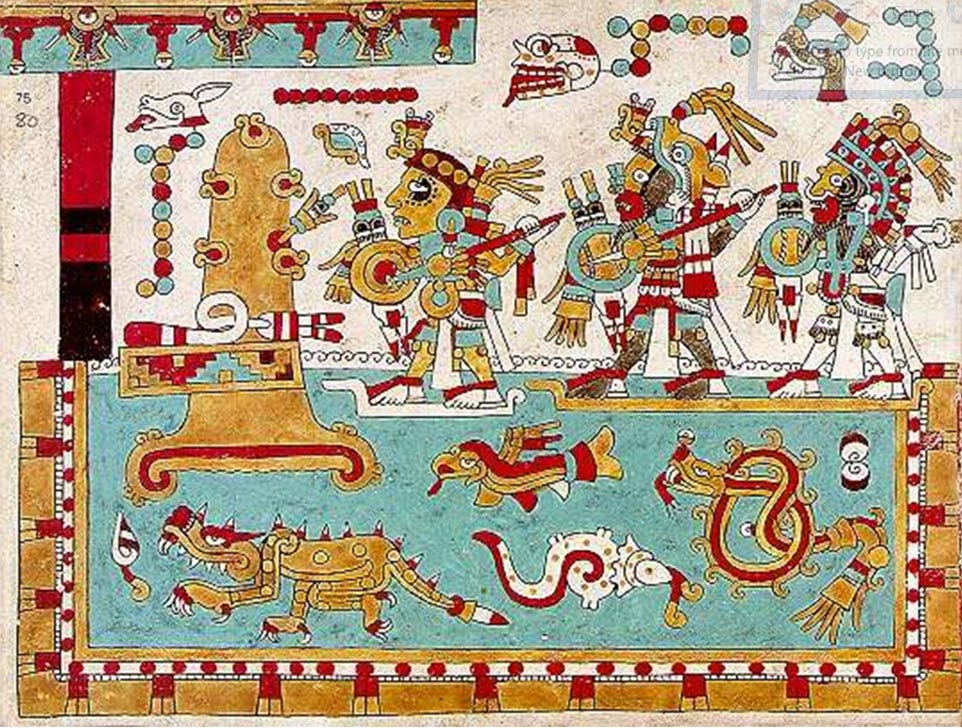
- Teacher: Elliott Young

- Teacher: Elliott Young

The history of modern Latin America, from independence at the beginning of the nineteenth century until the present, is one that continues to have a profound political, social and economic impact on the United States. This course will provide a context for the dizzying array of episodic news reports about the vast America that lies south of the Rio Grande. It is a survey in that we will focus on broad themes, but we will also be exploring, as much as possible, the particular experiences of individual countries and social classes. Themes that we will be investigating include nation-building, industrialization, modernization, development, indigenous rights, racism, revolution, “neo-colonial” or “dependent” relations with advanced industrialized countries, military rule, social movements and narco-trafficking.
We will begin and end the course with a discussion of more recent trends in Latin America, including the rise of neoliberalism and the concurrent re-emergence of social rebellion and populism from below.
- Teacher: Elliott Young
- Teacher: Susan Glosser
- Teacher: Susan Glosser
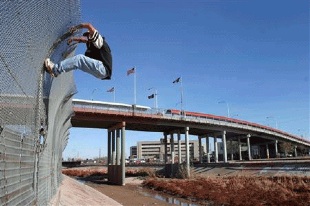
As well as studying the basic political/economic history of the border, we will explore the impact of the border on the construction of racial, national, gender and class identities. Thus, we will be seeking to understand what the border and the borderlands can teach us about ethnic and transnational relations more generally. We begin in the sixteenth century when this region was being settled by Spaniards moving north from New Spain to highlight the continuities between the colonial and national eras. However, we will spend most of our time examining the nineteenth and twentieth centuries when the US-Mexico border came into existence. Themes we will explore include race relations, capitalist development, ethnic rebellion, transculturation, migration, gender, cross-border organizing, and postmodern transborder communities.
- Teacher: Elliott Young
- Teacher: Andrew Bernstein
a major paper that interprets history. Topical
content varies depending on instructor's teaching
field. Recent topics: the Americas; the United
States and Asia; European intellectual history
since 1945; women in American history; Indian
policy on the Pacific slope; World War II, the
participants' perspectives; the British Raj;
cultural nationalism in East Asia. May be taken
twice for credit. Enrollment preference given to
history majors and minors.
- Teacher: Nancy Gallman
- Teacher: Reiko Hillyer
a major paper that interprets history. Topical
content varies depending on instructor's teaching
field. Recent topics: the Americas; the United
States and Asia; European intellectual history
since 1945; women in American history; Indian
policy on the Pacific slope; World War II, the
participants' perspectives; the British Raj;
cultural nationalism in East Asia. May be taken
twice for credit. Enrollment preference given to
history majors and minors.
- Teacher: Maureen Healy
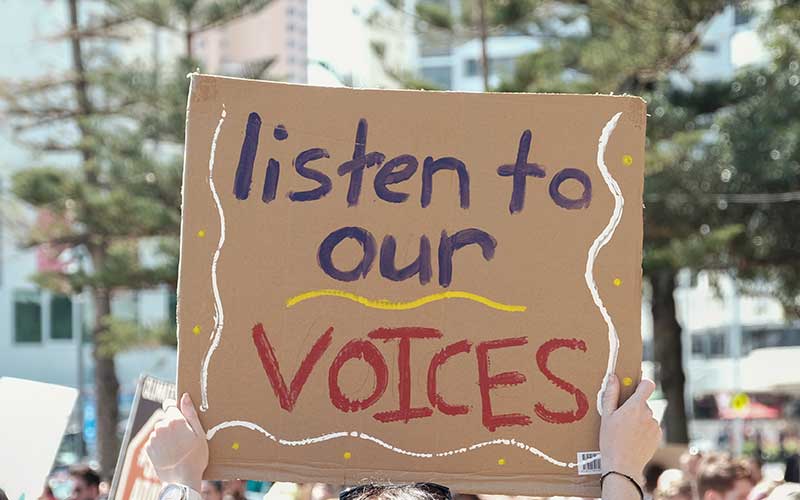
- Teacher: Lisa Benjamin

demands fair treatment in the context of
environmental protection for all people,
regardless of race, ethnicity, gender, religious
affiliation, economic status, national origin and
education level. It looks at environmental issues
through the lens of discrimination and assesses
how that discrimination shapes both vulnerability
and resilience. This course examines the
Environmental Justice movement and the
disproportionate impacts borne by vulnerable
constituents in the domestic and international
context of government regulation, corporate
activity, climate and energy concerns, and
environmental degradation. Readings include
selected cases, law review articles, case studies,
executive orders, legislation, and UN
declarations.
In addition to the course texts and supplemental
readings, we will also view select documentaries
and hear from guest speakers from community-based
organizations working to address racial and
socioeconomic disparities.
- Teacher: Lisa Benjamin

The Environmental Justice movement
demands fair treatment in the context of
environmental protection for all people,
regardless of race, ethnicity, gender, religious
affiliation, economic status, national origin and
education level. It looks at environmental issues
through the lens of discrimination and assesses
how that discrimination shapes both vulnerability
and resilience. This course examines the
Environmental Justice movement and the
disproportionate impacts borne by vulnerable
constituents in the domestic and international
context of government regulation, corporate
activity, climate and energy concerns, and
environmental degradation. Readings include
selected cases, law review articles, case studies,
executive orders, legislation, and UN
declarations.
In addition to the course texts and supplemental
readings, we will also view select documentaries
and hear from guest speakers from community-based
organizations working to address racial and
socioeconomic disparities. The class will be
graded principally on the basis of a final
research paper, along with class participation and
presentations.
Summer 2024 Course Descripton
This section will be offered online.
This class will explore the causes of and
solutions to environmental racism and injustice.
It will consider disparities faced by communities
of color, indigenous peoples, and low-income
groups in access to and control over the
environmental requisites for health and
well-being. The class will examine various legal
tools' potential to help bring about environmental
justice, highlighting the appropriateness of
different tools for different contexts. Students
will be expected to view the class videos and
participate in online discussion in the time
frames allotted.
- Teacher: Lisa Benjamin

- Teacher: Daniel Rohlf
- Teacher: Joyce Tischler

- Teacher: Lisa Benjamin
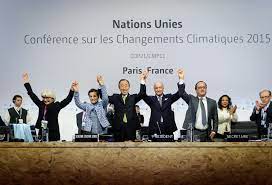
- Teacher: Lisa Benjamin
policy. It will begin with an overview of climate
science and a discussion of the existing and
expected impacts of climate change. Next, the
course will discuss federal laws, regulations, and
policies that regulate greenhouse gases and
otherwise address climate change impacts. The
course will then discuss state and local
approaches to address climate change. The class
will also discuss climate change litigation in
federal and state courts. Time permitting, the
course will compare U.S. approaches to climate
change law and policy in other countries.
- Teacher: Melissa Powers
policy. It will begin with an overview of climate
science and a discussion of the existing and
expected impacts of climate change. Next, the
course will discuss federal laws, regulations, and
policies that regulate greenhouse gases and
otherwise address climate change impacts. The
course will then discuss state and local
approaches to address climate change. The class
will also discuss climate change litigation in
federal and state courts. Time permitting, the
course will compare U.S. approaches to climate
change law and policy in other countries.
- Teacher: Melissa Powers
- Teacher: Ronna Craig
- Teacher: Melissa Powers
investigation through sentence and post-sentence matters. It examines state constitutions and federal statutory victims' rights. The course analyzes definitions of "victim" to see who is included and excluded; examines gender and racial bias in criminal justice and how these impact response to crime; and engages with underlying cultural dynamics and their relationship with the legal system to assess how law serves as a force that preserves or destroys relationships of power.
This course offers the opportunity to understand both the practice and the theory of law emerging in this area.
- Teacher: Meg Garvin
through all stages of criminal procedure, from
investigation through sentence and post-sentence
matters. It examines state constitutions and
federal statutory victims' rights. The course
analyzes definitions of "victim" to see who is
included and excluded; examines gender and racial
bias in criminal justice and how these impact
response to crime; and engages with underlying
cultural dynamics and their relationship with the
legal system to assess how law serves as a force
that preserves or destroys relationships of power.
This course offers the opportunity to understand
both the practice and the theory of law emerging
in this area.
- Teacher: Meg Garvin
- Teacher: Wonyoung Cho
- Teacher: Nicole Quarles
- Teacher: Lana Kim
- Teacher: Lana Kim
- Teacher: Wonyoung Cho
- Teacher: Wonyoung Cho
- Teacher: Nicole Quarles
- Teacher: Lana Kim
- Teacher: Lana Kim
- Teacher: Wonyoung Cho
developmental theory relevant to working with
children and adolescents in family therapy.
Emphasis is on developmentally and contextually
appropriate intervention that addresses child and
adolescent behavior, attachment, and other
presenting issues such as child abuse, with
attention to the impact of larger systems of
power and privilege.
- Teacher: Wonyoung Cho
- Teacher: Pilar Hernandez-Wolfe
- Teacher: Pilar Hernandez-Wolfe
Family interaction processes and development, within cultural contexts. Topics include: family, development, diverse family forms, patterns and, dynamics of family interaction, and the impact of, social context and culture on family life.
- Teacher: Pilar Hernandez-Wolfe
- Teacher: Pilar Hernandez-Wolfe
- Teacher: Pilar Hernandez-Wolfe
within cultural contexts. Topics include: family
development, diverse family forms, patterns and
dynamics of family interaction, and the impact of
social context and culture on family life.
- Teacher: Diane McLendon
- Teacher: Justin Rock
- Teacher: Justin Rock
- Teacher: Justin Rock
within cultural contexts. Topics include: family
development, diverse family forms, patterns and
dynamics of family interaction, and the impact of
social context and culture on family life.
- Teacher: Justin Rock
- Teacher: Tod Sloan
explore 1) privacy, personal space, social interactions, 2) safety in community and social life,
3) relationships between social class and mobility, 4) dynamics of boundaries and resistance, and (5) relevance of these for case conceptualization and treatment planning.
- Teacher: Carmen Knudson-Martin
- Teacher: Jeffrey Christensen
- Teacher: Charles Dickerman
- Teacher: Charles Dickerman
- Teacher: Wendy Esther
- Teacher: Wendy Esther
of the field of addiction counseling and the
impact of addiction on child, adolescent, and
adult populations. The course will summarize key
points drawn from the following areas: the
American experience with addiction and recovery,
theoretical explanations for understanding
addiction and dual diagnosis, basic pharmacology
and neuroscience, and assessment and treatment
issues specific to dual diagnosis and addiction
counseling.
- Teacher: Raelynn Freden
- Teacher: Charles Dickerman
- Teacher: Charles Dickerman
- Teacher: Mark Douglass
- Teacher: Wendy Esther
- Teacher: Raelynn Freden
of the field of addiction counseling and the
impact of addiction on child, adolescent, and
adult populations. The course will summarize key
points drawn from the following areas: the
American experience with addiction and recovery,
theoretical explanations for understanding
addiction and dual diagnosis, basic pharmacology
and neuroscience, and assessment and treatment
issues specific to dual diagnosis and addiction
counseling.
- Teacher: Jeffrey Christensen
- Teacher: Charles Dickerman
- Teacher: Dalia Baadarani
trends, concerns, and programs/interventions for
diverse client populations; career counseling
strategies, tools, and resources (including
Web-based resources); facilitation of client
awareness, choice, and action with respect to
career-related issues; integration of career
counseling with mental health and addictions
treatment. Emphasis is on developing a broad view
of career as lifestyle, the mutual impact of
career and culture, and the practical application
of theory and information in a professional
counseling context.
- Teacher: Kate Madden
- Teacher: Hosia Keene
- Teacher: Gregory Kaplan
- Teacher: Kate Madden
trends, concerns, and programs/interventions for
diverse client populations; career counseling
strategies, tools, and resources (including
Web-based resources); facilitation of client
awareness, choice, and action with respect to
career-related issues; integration of career
counseling with mental health and addictions
treatment. Emphasis is on developing a broad view
of career as lifestyle, the mutual impact of
career and culture, and the practical application
of theory and information in a professional
counseling context.
- Teacher: Kate Madden
trends, concerns, and programs/interventions for
diverse client populations; career counseling
strategies, tools, and resources (including
Web-based resources); facilitation of client
awareness, choice, and action with respect to
career-related issues; integration of career
counseling with mental health and addictions
treatment. Emphasis is on developing a broad view
of career as lifestyle, the mutual impact of
career and culture, and the practical application
of theory and information in a professional
counseling context.
- Teacher: Kate Madden
- Teacher: John Schreurs
- Teacher: Kate Madden
trends, concerns, and programs/interventions for
diverse client populations; career counseling
strategies, tools, and resources (including
Web-based resources); facilitation of client
awareness, choice, and action with respect to
career-related issues; integration of career
counseling with mental health and addictions
treatment. Emphasis is on developing a broad view
of career as lifestyle, the mutual impact of
career and culture, and the practical application
of theory and information in a professional
counseling context.
- Teacher: Kate Madden
- Teacher: John Schreurs
- Teacher: Candice Thompson
- Teacher: John Schreurs
in school, clinical, and applied settings.
Addresses psychometric concepts such as validity,
reliability, norms, and score interpretation.
Surveys intelligence, personality, career,
interest, aptitude, and achievement tests and
reviews alternative methods of assessing
competence and person-situation interactions.
Contemporary issues such as the validity of
instruments for diverse populations and the impact
of technology on assessment are discussed.
- Teacher: Krystal Marcinkiewicz
- Teacher: Jeffrey Christensen
- Teacher: Jeffrey Christensen
- Teacher: Leigh Anne Scherer
- Teacher: Jeffrey Christensen
- Teacher: Jeffrey Christensen
- Teacher: Jeffrey Christensen
- Teacher: Jeffrey Christensen
- Teacher: Tyler Case
- Teacher: Jeffrey Christensen
- Teacher: Jeffrey Christensen
- Teacher: Jeffrey Christensen
- Teacher: Krystal Marcinkiewicz
- Teacher: Jeffrey Christensen
in school, clinical, and applied settings.
Addresses psychometric concepts such as validity,
reliability, norms, and score interpretation.
Surveys intelligence, personality, career,
interest, aptitude, and achievement tests and
reviews alternative methods of assessing
competence and person-situation interactions.
Contemporary issues such as the validity of
instruments for diverse populations and the impact
of technology on assessment are discussed.
- Teacher: Krystal Marcinkiewicz
- Teacher: Jeffrey Christensen
- Teacher: Justin Henderson
- Teacher: Jeffrey Christensen
- Teacher: Jeffrey Christensen
in school, clinical, and applied settings.
Addresses psychometric concepts such as validity,
reliability, norms, and score interpretation.
Surveys intelligence, personality, career,
interest, aptitude, and achievement tests and
reviews alternative methods of assessing
competence and person-situation interactions.
Contemporary issues such as the validity of
instruments for diverse populations and the impact
of technology on assessment are discussed.
- Teacher: Antonia Mueller
- Teacher: Gracen Tichelaar
- Teacher: Jeffrey Christensen
in school, clinical, and applied settings.
Addresses psychometric concepts such as validity,
reliability, norms, and score interpretation.
Surveys intelligence, personality, career,
interest, aptitude, and achievement tests and
reviews alternative methods of assessing
competence and person-situation interactions.
Contemporary issues such as the validity of
instruments for diverse populations and the impact
of technology on assessment are discussed.
- Teacher: Jeffrey Christensen
- Teacher: Krystal Marcinkiewicz
- Teacher: Gracen Tichelaar
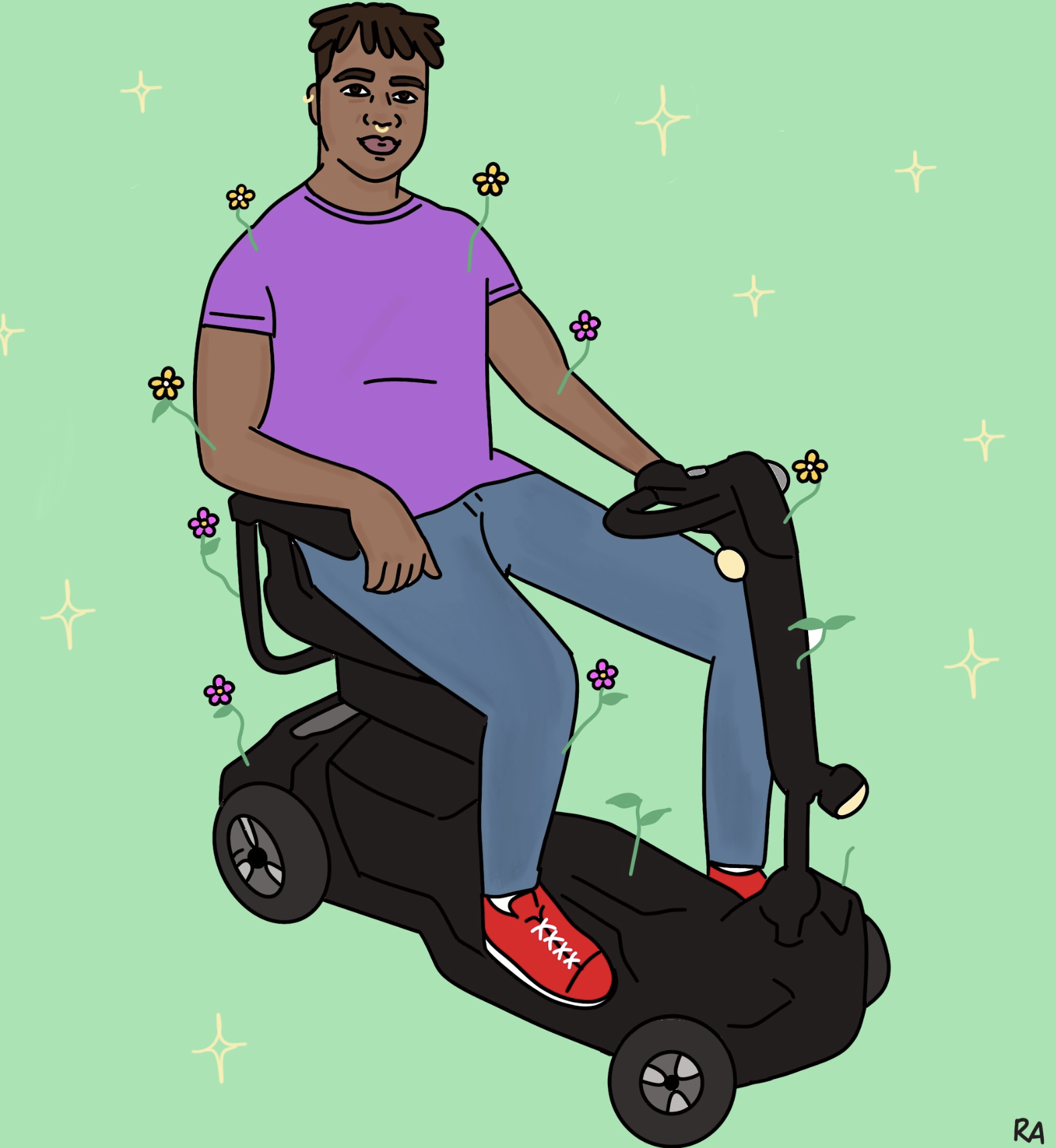
- Teacher: Rafe McCullough
- Teacher: Alexia Deleon
- Teacher: Mark Douglass
- Teacher: Mark Douglass
- Teacher: Mark Douglass

Major drugs and classes of abused substances.
Mechanisms of action in the brain, patterns of
physiological response in abuse, addiction, and
recovery. Impact on brain function, cognition,
emotions, behavior, and social effects.
Pharmacological adjuncts to detoxification and
treatment.
- Teacher: Justin Henderson
- Teacher: Kayla Carrar
- Teacher: Justin Henderson
Major drugs and classes of abused substances.
Mechanisms of action in the brain, patterns of
physiological response in abuse, addiction, and
recovery. Impact on brain function, cognition,
emotions, behavior, and social effects.
Pharmacological adjuncts to detoxification and
treatment.
- Teacher: Mark Douglass
Major drugs and classes of abused substances.
Mechanisms of action in the brain, patterns of
physiological response in abuse, addiction, and
recovery. Impact on brain function, cognition,
emotions, behavior, and social effects.
Pharmacological adjuncts to detoxification and
treatment.
- Teacher: Mark Douglass
- Teacher: Alexia Deleon
- Teacher: Alexia Deleon
- Teacher: Alexia Deleon
- Teacher: Alexia Deleon

effects of addiction to alcohol and drugs of
abuse. Conditions, processes, and patterns of
recovery. Emphasis on physiological, social
learning, and interpersonal models and theories.
Natural history of onset, abuse, addiction, and
recovery; effects of intergenerational
transmission, genetic predilection, developmental
risk, and sociocultural factors; effects on
psychosocial development; impact of culture and
gender differences. Implications for treatment.
- Teacher: Alexia Deleon
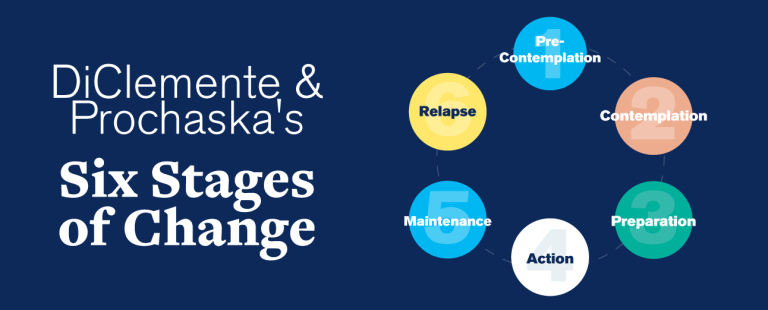
- Teacher: Alexia Deleon
- Teacher: Mark Douglass
- Teacher: Alexia Deleon

effects of addiction to alcohol and drugs of
abuse. Conditions, processes, and patterns of
recovery. Emphasis on physiological, social
learning, and interpersonal models and theories.
Natural history of onset, abuse, addiction, and
recovery; effects of intergenerational
transmission, genetic predilection, developmental
risk, and sociocultural factors; effects on
psychosocial development; impact of culture and
gender differences. Implications for treatment.
- Teacher: Alexia Deleon
- Teacher: Marie Tran
Theories of the nature, course, causes, and, effects of addiction to alcohol and drugs of, abuse. Conditions, processes, and patterns of, recovery. Emphasis on physiological, social, learning, and interpersonal models and theories., Natural history of onset, abuse, addiction, and, recovery; effects of intergenerational, transmission, genetic predilection, developmental, risk, and sociocultural factors; effects on, psychosocial development; impact of culture and, gender differences. Implications for treatment.
- Teacher: Kayla Carrar

Demonstration for submitting work in Moodle.
- Teacher: Educational Technology Administrator
- Teacher: Logan Drain
- Teacher: Hannah Korn
- Teacher: Steve McCurry
- Teacher: Chel (michelle) Pennock
data collection, study design, data analysis, and
the dissemination and application of data.
Practical guidance about how to uncover ethical
weaknesses in existing protocols and how to
undertake constructive, effective, fair data
scientific research and application of automated
processes. Survey of technological advances in
strategies for collecting data, implementing
studies, analyzing data, and disseminating
findings both to broad public audiences and to
narrow groups who are disproportionately impacted.
Explores research on the consequences of choices
made by human and machine actors and assemblages
of human-in-the-loop sociotechnical systems.
Focuses on both legal and ethical frameworks.
- Teacher: Colin Patrick
- Teacher: Colin Patrick
physical systems of classical mechanics and the
physical interpretation of mathematical solutions.
Linear oscillating systems, the two-body problem,
rotating and accelerated reference frames,
rotation of extended bodies, theory of scattering.
Newtonian methods, methods of Lagrange and
Hamilton, phase space analysis.
- Teacher: Bethe Scalettar
- Teacher: Bethe Scalettar
- Teacher: Bethe Scalettar
- Teacher: Bethe Scalettar
comparative politics. Fundamental differences in
the organization of states, democratic political
institutions (presidentialism versus
parliamentarianism, for example), and domestic
social forces (for example, social capital, ethnic
versus nonethnic identities). The impact of
political organization on economic performance and
social peace.
- Teacher: Ben Gaskins
- Teacher: Ben Gaskins
- Teacher: Ben Gaskins
comparative politics. Fundamental differences in
the organization of states, democratic political
institutions (presidentialism versus
parliamentarianism, for example), and domestic
social forces (for example, social capital, ethnic
versus nonethnic identities). The impact of
political organization on economic performance and
social peace.
- Teacher: Ben Gaskins
- Teacher: Ben Gaskins
- Teacher: Ben Gaskins
- Teacher: Ben Gaskins
- Teacher: Ben Gaskins
- Teacher: Jolina Ruckert
- Teacher: Thomas Schoeneman
- Teacher: Jennifer Labounty

psychologically oriented occupations. Building
human relations skills; becoming acquainted with
important human service institutions and their
social impact. Theoretical and practical
frameworks for intervention.
- Teacher: Jolina Ruckert
- Teacher: Jennifer Labounty
- Teacher: Jolina Ruckert
- Teacher: Jolina Ruckert
- Teacher: Nadia Boria
- Teacher: Erin Ocon
of the Civil War to the present day, emphasizing
the interaction between America's many religions
and emerging American modernity. The fate of
"traditional" religion in modern America;
"alternate" American religious traditions;
urbanization, industrialism, and religion;
science, technology, and secularism;
evangelicalism, modernism, and fundamentalism;
religious bigotry; pluralism; new religions and
neofundamentalism.
- Teacher: Susanna Morrill
- Teacher: Susanna Morrill
- Teacher: Susanna Morrill
- Teacher: Susanna Morrill
communication processes (e.g., social support,
uncertainty management, privacy management,
conflict, deception). Influence of new media on
these processes, impact of communication media on
identities, relationships, and communities.
- Teacher: Benjamin Mann
- Teacher: Daena Goldsmith
- Teacher: Benjamin Mann
communication processes (e.g., social support,
uncertainty management, privacy management,
conflict, deception). Influence of new media on
these processes, impact of communication media on
identities, relationships, and communities.
- Teacher: Benjamin Mann
- Teacher: Mitch Reyes
- Teacher: Mitch Reyes
- Teacher: Mitch Reyes
- Teacher: Mitch Reyes
Welcome to LC! You will find all the tasks you need to complete over the summer and be able to track them here before you arrive on campus.
- Teacher: Robin Jarecki
- Teacher: Katie McFaddin
- Teacher: Educational Technology Administrator
- Teacher: Lisa Hatfield
This course will cover topics including gender-based violence, sexual violence, and sexual misconduct. Students will examine gender-based violence (sexual harassment, sexual assault, intimate partner violence, and stalking) prevention and advocacy in the context of higher education. A brief review of the history of addressing gender-based violence in a college setting will be followed by an examination of best, and promising practices in prevention and advocacy. Students will explore the impacts of gender-based violence on the campus community and the role student affairs practitioners have in addressing it.
- Teacher: Melissa Osmond

- Teacher: Tamara Tribitt

- Teacher: Tamara Tribitt
counseling topics: history of the school
counseling profession, professional organizations,
leadership for educational equity, perspectives
and practices for school counseling in the 21st
century, professional identity, personhood of the
counselor, systemic racism and social justice
issues impacting school counseling, and
comprehensive school counseling program
development.
- Teacher: Tianka Pharaoh
- Teacher: Danielle Torres
- Teacher: Danielle Torres
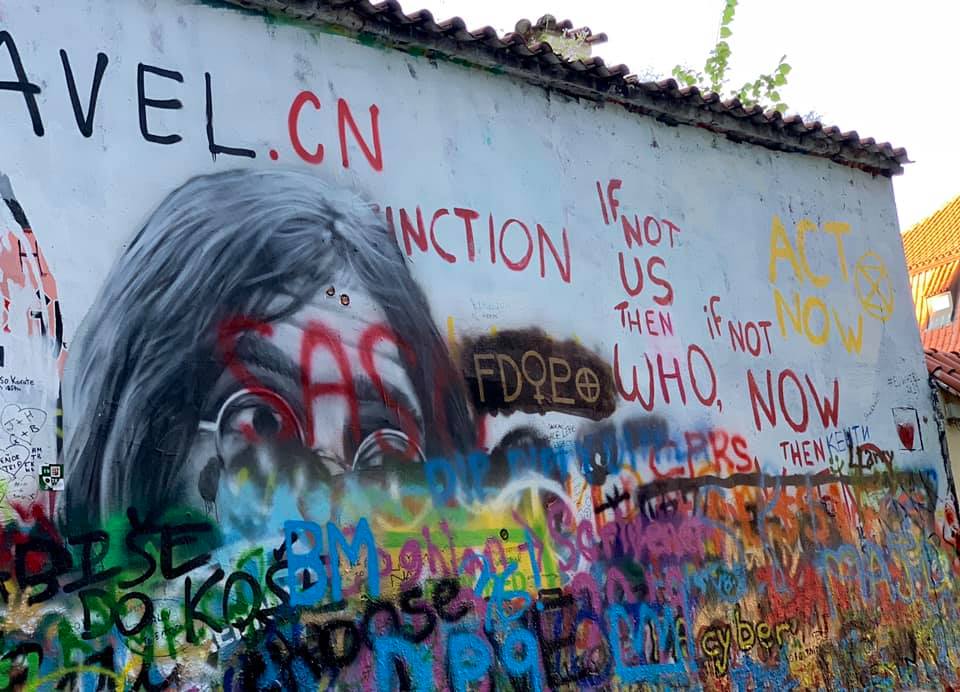
- Teacher: Tamara Tribitt
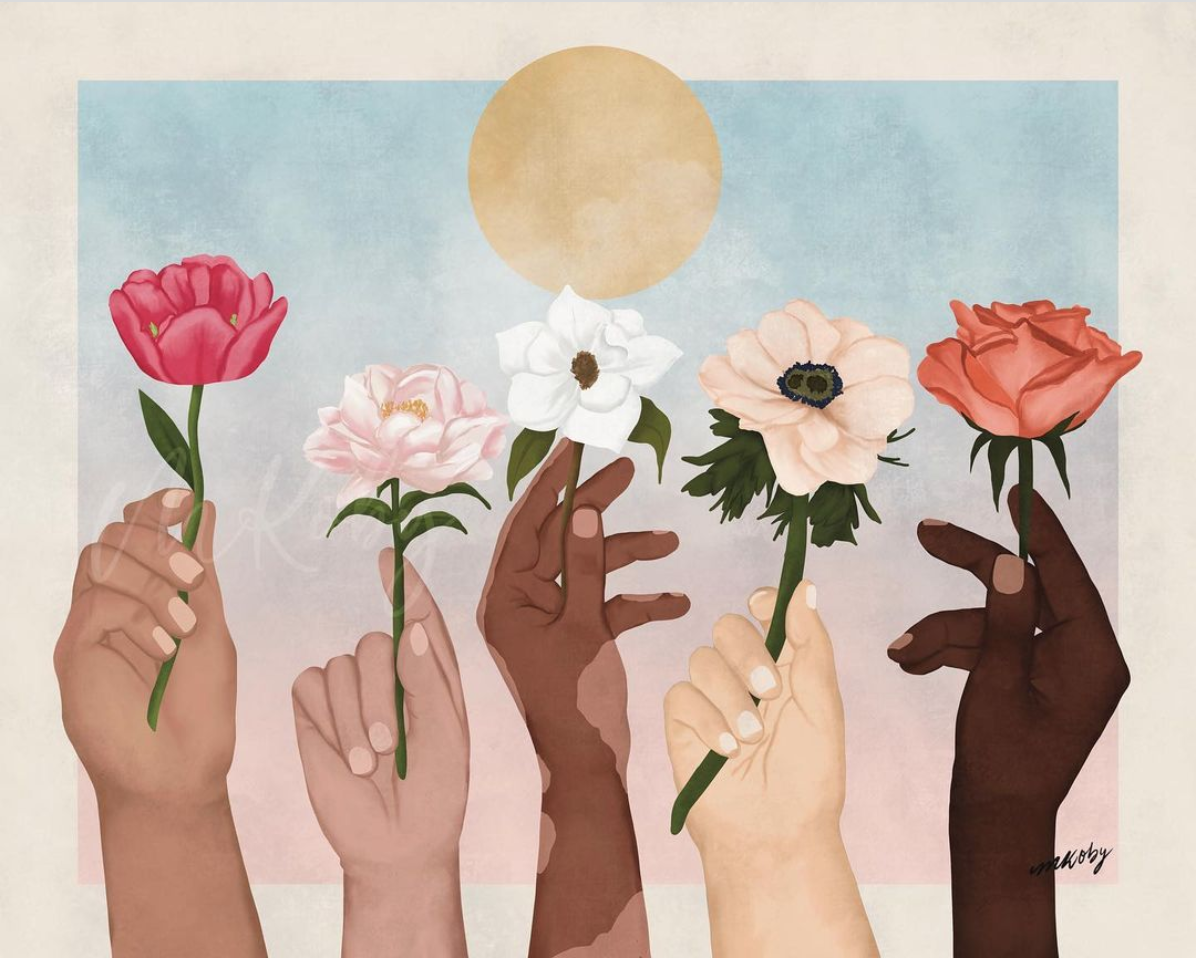
- Teacher: Tamara Tribitt
- Teacher: Danielle Torres
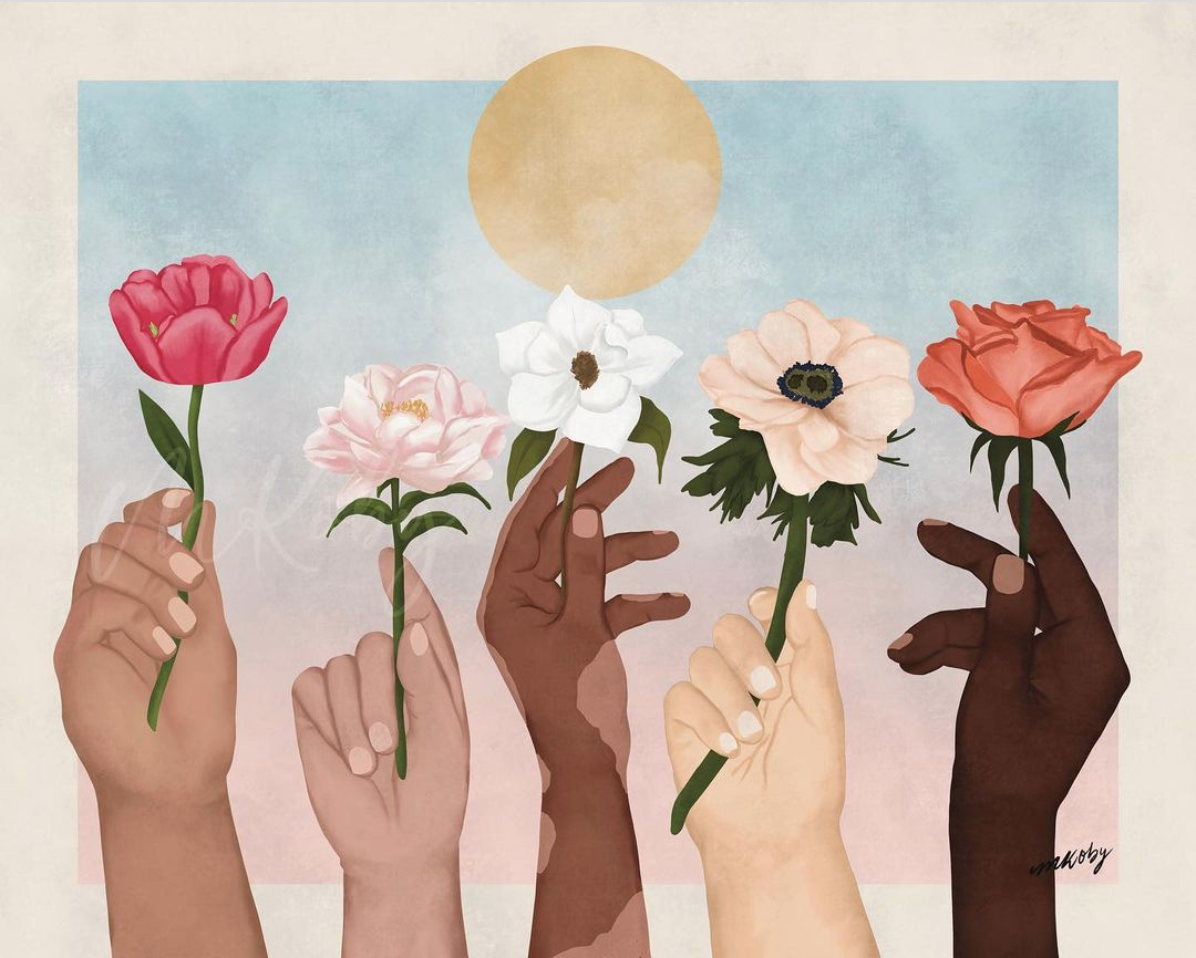
- Teacher: Tamara Tribitt
- Teacher: Danielle Torres
- Teacher: Danielle Torres
- Teacher: Danielle Torres

- Teacher: Tamara Tribitt
- Teacher: Danielle Torres

diverse communities as identified by race,
ethnicity, gender, class, sexual orientation, age,
disability, or religion. Addresses methods for
positively impacting social and cultural diversity
and equity issues including the possible effects
of culture, race stereotyping, family,
socioeconomic status, gender, sexual identity,
language, and values on student development and
progress in the school setting. Content and
methodology emphasize small-group activities,
collaboration, and use of data to create equity
for all students. Candidates practice taking an
active role in supporting all students and focus
on eliminating the achievement gap.
- Teacher: Tamara Tribitt
- Teacher: Rafe McCullough
- Teacher: Rafe McCullough

- Teacher: Renee Caballero
- Teacher: Tamara Tribitt
- Teacher: Tamara Tribitt

- Teacher: Tamara Tribitt
- Teacher: Tianka Pharaoh
- Teacher: Liza Finkel
- Teacher: Liza Finkel
FALL 2021: SOAN 110-01 INTRODUCTION TO CULTURAL ANTHROPOLOGY
MWF @ 9:10 – 10:10am, Miller Center, Room 205
COURSE INTRO: Anthropology is a four-field discipline, but cultural anthropology is the study of lived human experience as it is represented in and by symbolic, material, and virtual culture. Anthropologists, attend closely to everyday relationships between individuals and their immediate communities. Yet, we also study culture in the context of globalization because few individuals or particular cultural formations are isolated (or ever have been!) from broader political, market, and technological shifts. We have some standard and evolving methodological tools to facilitate our research and involvements in . Thus, anthropologists also study the varied forms of structural power that marshal the world’s inhabitants—human and otherwise—into complex networks! Our pace for this class is moderate.
- Teacher: Kim Cameron-Dominguez
- Teacher: Kabir Heimsath
- Teacher: Beth Merrill
- Teacher: Cari Zall
- Teacher: Timothy Graham
- Teacher: Stepan Simek